Indigenous Governance Database
cultural match
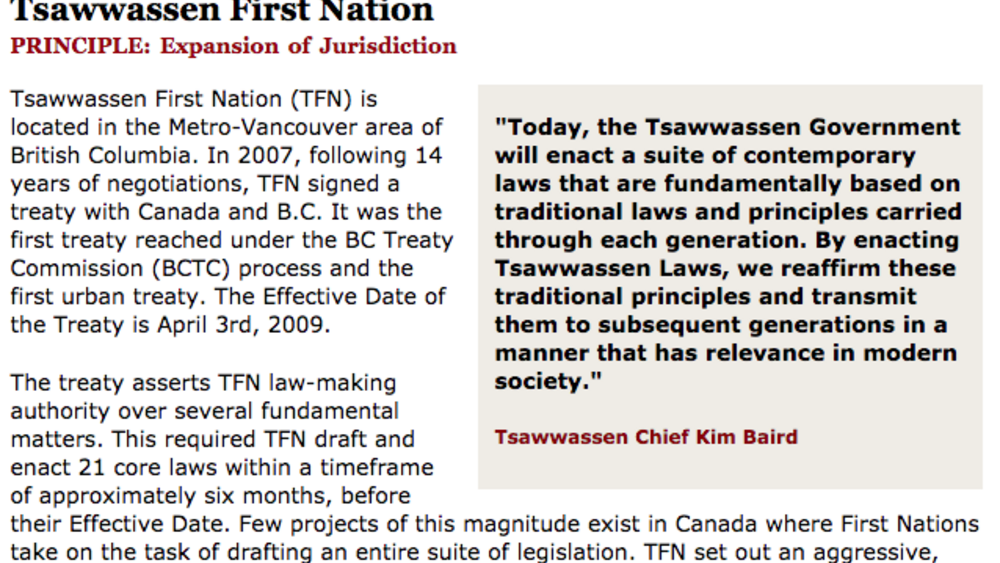
Best Practices Case Study (Expansion of Jurisdiction): Tsawwassen First Nation
Tsawwassen First Nation (TFN) is located in the Metro-Vancouver area of British Columbia. In 2007, following 14 years of negotiations, TFN signed a treaty with Canada and B.C. It was the first treaty reached under the BC Treaty Commission (BCTC) process and the first urban treaty. The Effective…
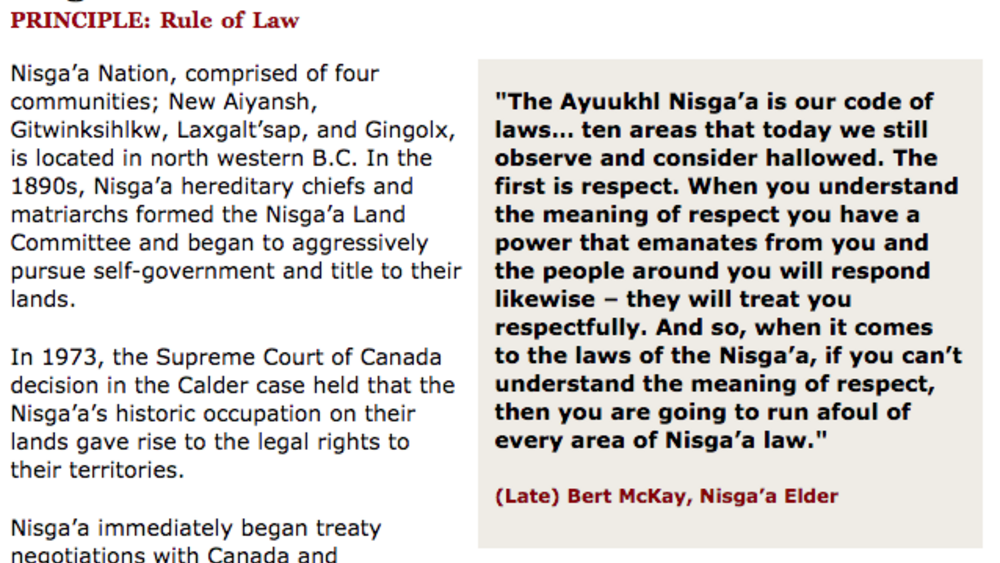
Best Practices Case Study (Rule of Law): Nisga'a Nation
Nisga'a Nation, comprised of four communities; New Aiyansh, Gitwinksihlkw, Laxgalt'sap, and Gingolx, is located in northwestern B.C. In the 1890s, Nisga'a hereditary chiefs and matriarchs formed the Nisga'a Land Committee and began to aggressively pursue self-government and title to their lands.…
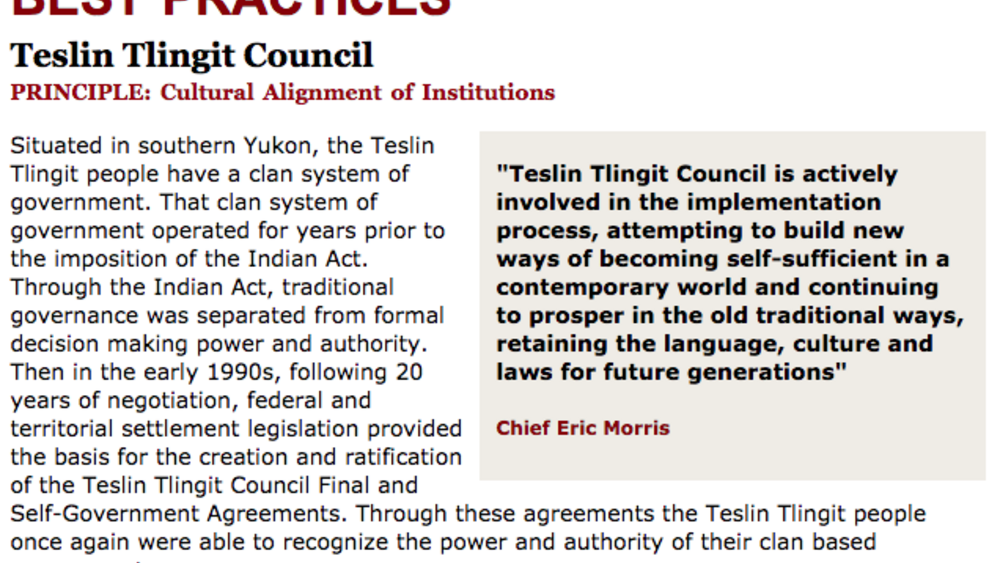
Best Practices Case Study (Cultural Alignment of Institutions): Teslin Tlingit Council
Situated in southern Yukon, the Teslin Tlingit people have a clan system of government. That clan system of government operated for years prior to the imposition of the Indian Act. Through the Indian Act, traditional governance was separated from formal decision-making power and authority. Then in…
![Tribal Law as Indigenous Social Reality and Separate Consciousness: [Re]Incorporating Customs and Traditions into Tribal Law Tribal Law as Indigenous Social Reality and Separate Consciousness: [Re]Incorporating Customs and Traditions into Tribal Law](/sites/default/files/styles/resources/public/resources/Screen%2520Shot%25202016-10-11%2520at%25201.22.13%2520PM.png?itok=pvkjKhR1)
Tribal Law as Indigenous Social Reality and Separate Consciousness: [Re]Incorporating Customs and Traditions into Tribal Law
At some point in my legal career, I recall becoming increasingly uncomfortable with the inconsistencies between the values in the written law of various indigenous nations and the values I knew were embedded in indigenous societies themselves. The two are not entirely in harmony, and in fact, in…
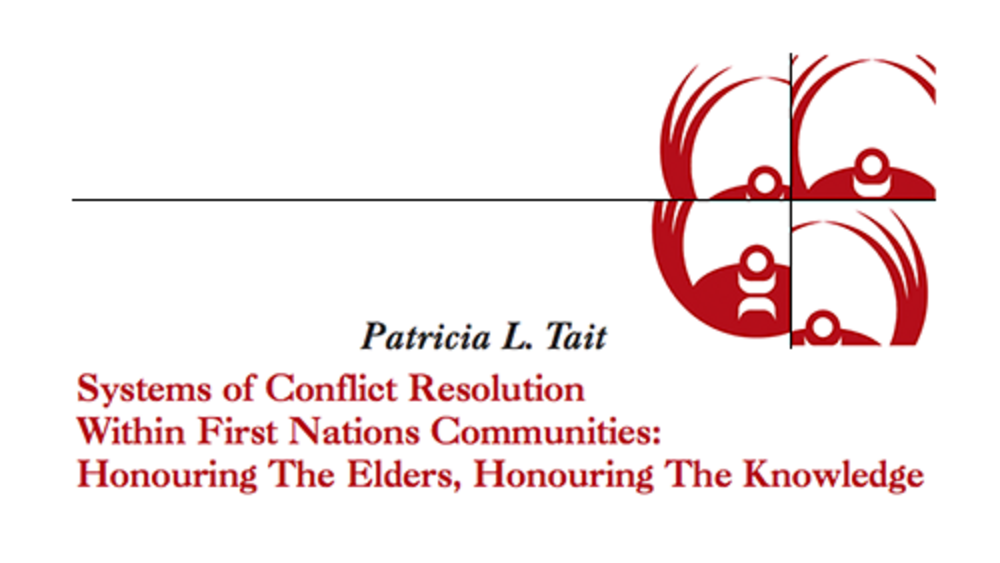
Systems of Conflict Resolution Within First Nations Communities: Honouring The Elders, Honouring The Knowledge
First Nations people are well aware that many of our governments and citizens struggle to move beyond the violence and dysfunction that characterizes some individuals, families and communities. Within some community settings, drugs and alcohol prevail, family members are involved in…
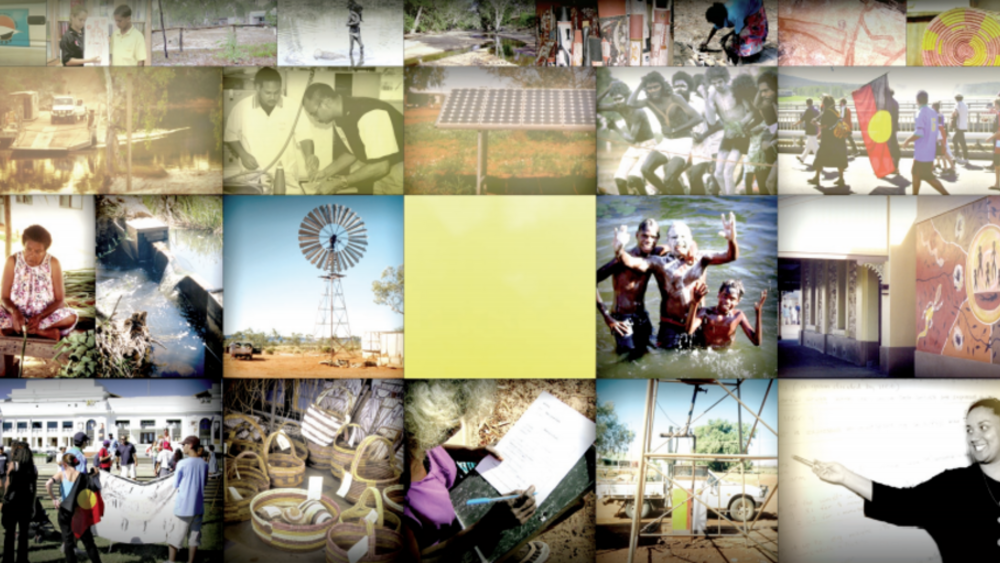
From Gove to Governance: Reshaping Indigenous Governance in the Northern Territory
This paper attempts to identify the key challenges facing Indigenous people and governments in reshaping the architecture of Indigenous governance in the Northern Territory of Australia, and considers some strategic options for a way forward. First, a brief historical background is provided to…
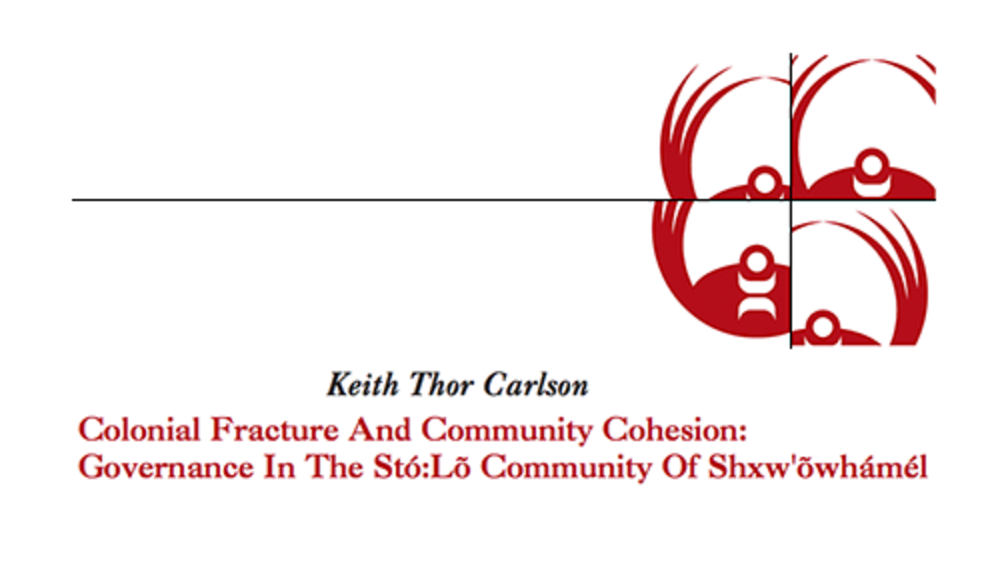
Colonial Fracture And Community Cohesion: Governance In The Stó:Lõ Community Of Shxw'õwhámél
This paper has three goals: 1) To briefly outline the process through which Shxw’õwhámél came to adopt the Siyá:m System in 1994; 2) to highlight certain concerns about the limitations of that system as articulated by community members in 2006; and 3) to provide a detailed discussion of those…
Pagination
- First page
- …
- 4
- 5
- 6
- …
